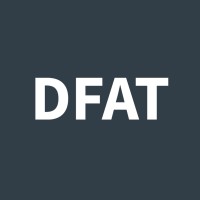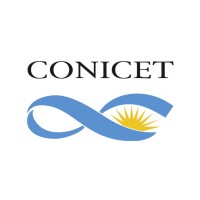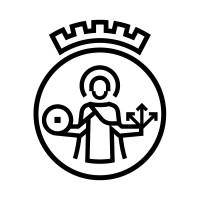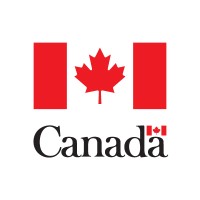
Australian Department of Foreign Affairs and Trade Company Cyber Security Posture
dfat.gov.auThe Department of Foreign Affairs and Trade (DFAT) works with international partners and other countries to tackle global challenges, increase trade and investment opportunities, protect international rules, keep our region stable and help Australians overseas. DFAT manages Australia’s international presence—a network of over 120 embassies, high commissions, consulates-general and representative offices across five continents —and we have over 6,000 staff located in Australia and overseas. These staff are the diplomats, negotiators, consular officers and advisers developing and delivering Australia’s foreign, trade and development policy on behalf of Australia and Australians. For 24/7 consular assistance, phone +61 2 6261 3305. DFAT acknowledges the Traditional Custodians of Country throughout Australia, and their continuing connection to land, waters and community. We pay our respect to all First Nations peoples, their cultures and to their Elders, past, present and emerging.
ADFAT Company Details
department-of-foreign-affairs-and-trade
4385 employees
130879.0
922
Government Administration
dfat.gov.au
Scan still pending
AUS_2063955
In-progress
Between 900 and 1000
This score is AI-generated and less favored by cyber insurers, who prefer the TPRM score.
 ADFAT Global Score
ADFAT Global Score.png)

Australian Department of Foreign Affairs and Trade Company Scoring based on AI Models
| Model Name | Date | Description | Current Score Difference | Score |
|---|---|---|---|---|
| AVERAGE-Industry | 03-12-2025 | This score represents the average cybersecurity rating of companies already scanned within the same industry. It provides a benchmark to compare an individual company's security posture against its industry peers. | N/A | Between 900 and 1000 |
Australian Department of Foreign Affairs and Trade Company Cyber Security News & History
| Entity | Type | Severity | Impact | Seen | Url ID | Details | View |
|---|---|---|---|---|---|---|---|
| Australian Department of Foreign Affairs and Trade | Breach | 80 | 7 | 10/2020 | AUS23366422 | Link | |
Rankiteo Explanation : Attack that could injure or kill peopleDescription: Dfat Australia accidentally compromised the personal contact details of 2,727 stranded overseas people in a data security incident. The foreign department informed and apologized from the impacted persons and conformed that no other personal information was disclosed in the attack. | |||||||
Australian Department of Foreign Affairs and Trade Company Subsidiaries

The Department of Foreign Affairs and Trade (DFAT) works with international partners and other countries to tackle global challenges, increase trade and investment opportunities, protect international rules, keep our region stable and help Australians overseas. DFAT manages Australia’s international presence—a network of over 120 embassies, high commissions, consulates-general and representative offices across five continents —and we have over 6,000 staff located in Australia and overseas. These staff are the diplomats, negotiators, consular officers and advisers developing and delivering Australia’s foreign, trade and development policy on behalf of Australia and Australians. For 24/7 consular assistance, phone +61 2 6261 3305. DFAT acknowledges the Traditional Custodians of Country throughout Australia, and their continuing connection to land, waters and community. We pay our respect to all First Nations peoples, their cultures and to their Elders, past, present and emerging.
Access Data Using Our API

Get company history
.png)
ADFAT Cyber Security News
Cyber sanctions imposed on Russian citizens for cybercrime
Australia has imposed targeted financial sanctions and travel bans on three Russian citizens for their involvement in the Evil Corp cybercrime group.
Australia in the World - 2025 Snapshot
This 2025 Snapshot focuses on a key element of our national power: our foreign policy. It explains how we can protect our security, stability and prosperity.
Deputy Secretary-General for ASEAN Political-Security Community engages with the ASEAN-Australia Centre in Canberra and relevant divisions of the Department of Foreign Affairs and Trade
Deputy Secretary-General for ASEAN Political-Security Community engages with the ASEAN-Australia Centre in Canberra and relevant divisions of ...
Australia’s Progress on Women, Peace, and Security: A Critical Look at the Latest Report
The Australian Government finally released their report on the implementation of Australia's National Action Plan on Women, Peace and Security, ...
DFAT seeks suppliers to deliver Southeast Asia and Pacific Cyber program
DFAT has put out an expression of interest from qualified industry suppliers to manage and deliver key components of its multimillion-dollar 2024-2028 ...
The Quad foreign ministers joint statement: short and sweet
Today's joint statement from the Quad foreign ministers' meeting in Washington is short and sweet, particularly for those who have been ...
Philippines and Australia Strengthen Partnership in Defense and Foreign Affairs Strategic Dialogue
Australia emphasized its shared views with the Philippines on current challenges facing the South China Sea and the Indo-Pacific region.
Australia and UK build on their critical technology partnership
The 2 countries agree to more collaboration as part of the Australia-UK Cyber and Critical Technology Partnership.
China-backed APT40 hacking group blamed for cyber attacks on Samoa
Samoa's government has blamed a Chinese state-backed hacking group for a series of sophisticated cyber attacks, saying it has been ...

ADFAT Similar Companies

Gobierno de Extremadura
El Gobierno de Extremadura es el órgano encargado de gestionar el autogobierno regional de la Comunidad Autónoma de Extremadura, la defensa de su identidad y la promoción del bienestar de los extremeños. Extremadura es una Comunidad Autónoma dentro de la unidad del Estado español y de acuerdo con

Belastingdienst
De organisatie bestaat uit diverse onderdelen, waaronder de Belastingdienst, Douane, Toeslagen, FIOD en enkele facilitaire organisaties. Met ruim 30.000 medewerkers werken we in kantoren die verspreid zijn over het hele land. Gezamenlijk heffen, innen en controleren we belastingen. Daarnaast zorgen

CONICET
El Consejo Nacional de Investigaciones Científicas y Técnicas (CONICET) es el principal organismo dedicado a la promoción de la ciencia y la tecnología en la Argentina. Su actividad se desarrolla en cuatro grandes áreas: • Ciencias agrarias, ingeniería y de materiales • Ciencias biológica

Wiener Stadtwerke GmbH
DIE Wiener Stadtwerke-Gruppe hält die lebenswerteste Stadt der Welt am Laufen. Dafür sorgen 18.000 Mitarbeiter*innen in den Bereichen Energie, Mobilität sowie Bestattung und Friedhöfe. Verlässlichkeit, Kompetenz und Innovationskraft sind die Basis dafür, dass wir den Wiener*innen rund um die U

Oslo kommune
Med ca. 50 000 ansatte er Oslo kommune en av Norges største arbeidsplasser. Vi utvikler hovedstaden og leverer tjenester og tilbud til innbyggerne i Norges største by. Oslo vokser, og du kan bidra til å gjøre Oslo til en god by å bo i – også i framtiden. Alt om jobb og karrieremuligheter i

Canada Revenue Agency - Agence du revenu du Canada
Welcome to the Canada Revenue Agency’s (CRA) official LinkedIn page! 🇨🇦 We take pride in our diverse workforce, which brings a wide range of skills and perspectives to the Canada Revenue Agency, and remain committed to fostering an inclusive workplace where everyone can thrive. We’re on a mission t

Frequently Asked Questions (FAQ) on Cybersecurity Incidents
ADFAT CyberSecurity History Information
Total Incidents: According to Rankiteo, ADFAT has faced 1 incidents in the past.
Incident Types: The types of cybersecurity incidents that have occurred include ['Breach'].
Total Financial Loss: The total financial loss from these incidents is estimated to be {total_financial_loss}.
Cybersecurity Posture: The company's overall cybersecurity posture is described as The Department of Foreign Affairs and Trade (DFAT) works with international partners and other countries to tackle global challenges, increase trade and investment opportunities, protect international rules, keep our region stable and help Australians overseas. DFAT manages Australia’s international presence—a network of over 120 embassies, high commissions, consulates-general and representative offices across five continents —and we have over 6,000 staff located in Australia and overseas. These staff are the diplomats, negotiators, consular officers and advisers developing and delivering Australia’s foreign, trade and development policy on behalf of Australia and Australians. For 24/7 consular assistance, phone +61 2 6261 3305. DFAT acknowledges the Traditional Custodians of Country throughout Australia, and their continuing connection to land, waters and community. We pay our respect to all First Nations peoples, their cultures and to their Elders, past, present and emerging..
Detection and Response: The company detects and responds to cybersecurity incidents through {description_of_detection_and_response_process}.
Incident Details
Incident 1: Ransomware Attack
Title: {Incident_Title}
Description: {Brief_description_of_the_incident}
Date Detected: {Detection_Date}
Date Publicly Disclosed: {Disclosure_Date}
Date Resolved: {Resolution_Date}
Type: {Type_of_Attack}
Attack Vector: {Attack_Vector}
Vulnerability Exploited: {Vulnerability}
Threat Actor: {Threat_Actor}
Motivation: {Motivation}
Incident 2: Data Breach
Title: {Incident_Title}
Description: {Brief_description_of_the_incident}
Date Detected: {Detection_Date}
Date Publicly Disclosed: {Disclosure_Date}
Date Resolved: {Resolution_Date}
Type: {Type_of_Attack}
Attack Vector: {Attack_Vector}
Vulnerability Exploited: {Vulnerability}
Threat Actor: {Threat_Actor}
Motivation: {Motivation}
Common Attack Types: As of now, the company has not encountered any reported incidents involving common cyberattacks.
Identification of Attack Vectors: The company identifies the attack vectors used in incidents through {description_of_identification_process}.
Impact of the Incidents
Incident 1: Ransomware Attack
Financial Loss: {Financial_Loss}
Data Compromised: {Data_Compromised}
Systems Affected: {Systems_Affected}
Downtime: {Downtime}
Operational Impact: {Operational_Impact}
Conversion Rate Impact: {Conversion_Rate_Impact}
Revenue Loss: {Revenue_Loss}
Customer Complaints: {Customer_Complaints}
Brand Reputation Impact: {Brand_Reputation_Impact}
Legal Liabilities: {Legal_Liabilities}
Identity Theft Risk: {Identity_Theft_Risk}
Payment Information Risk: {Payment_Information_Risk}
Incident 2: Data Breach
Financial Loss: {Financial_Loss}
Data Compromised: {Data_Compromised}
Systems Affected: {Systems_Affected}
Downtime: {Downtime}
Operational Impact: {Operational_Impact}
Conversion Rate Impact: {Conversion_Rate_Impact}
Revenue Loss: {Revenue_Loss}
Customer Complaints: {Customer_Complaints}
Brand Reputation Impact: {Brand_Reputation_Impact}
Legal Liabilities: {Legal_Liabilities}
Identity Theft Risk: {Identity_Theft_Risk}
Payment Information Risk: {Payment_Information_Risk}
Average Financial Loss: The average financial loss per incident is {average_financial_loss}.
Commonly Compromised Data Types: The types of data most commonly compromised in incidents are {list_of_commonly_compromised_data_types}.
Incident 1: Ransomware Attack
Entity Name: {Entity_Name}
Entity Type: {Entity_Type}
Industry: {Industry}
Location: {Location}
Size: {Size}
Customers Affected: {Customers_Affected}
Incident 2: Data Breach
Entity Name: {Entity_Name}
Entity Type: {Entity_Type}
Industry: {Industry}
Location: {Location}
Size: {Size}
Customers Affected: {Customers_Affected}
Response to the Incidents
Incident 1: Ransomware Attack
Incident Response Plan Activated: {Yes/No}
Third Party Assistance: {Yes/No}
Law Enforcement Notified: {Yes/No}
Containment Measures: {Containment_Measures}
Remediation Measures: {Remediation_Measures}
Recovery Measures: {Recovery_Measures}
Communication Strategy: {Communication_Strategy}
Adaptive Behavioral WAF: {Adaptive_Behavioral_WAF}
On-Demand Scrubbing Services: {On_Demand_Scrubbing_Services}
Network Segmentation: {Network_Segmentation}
Enhanced Monitoring: {Enhanced_Monitoring}
Incident 2: Data Breach
Incident Response Plan Activated: {Yes/No}
Third Party Assistance: {Yes/No}
Law Enforcement Notified: {Yes/No}
Containment Measures: {Containment_Measures}
Remediation Measures: {Remediation_Measures}
Recovery Measures: {Recovery_Measures}
Communication Strategy: {Communication_Strategy}
Adaptive Behavioral WAF: {Adaptive_Behavioral_WAF}
On-Demand Scrubbing Services: {On_Demand_Scrubbing_Services}
Network Segmentation: {Network_Segmentation}
Enhanced Monitoring: {Enhanced_Monitoring}
Incident Response Plan: The company's incident response plan is described as {description_of_incident_response_plan}.
Third-Party Assistance: The company involves third-party assistance in incident response through {description_of_third_party_involvement}.
Data Breach Information
Incident 2: Data Breach
Type of Data Compromised: {Type_of_Data}
Number of Records Exposed: {Number_of_Records}
Sensitivity of Data: {Sensitivity_of_Data}
Data Exfiltration: {Yes/No}
Data Encryption: {Yes/No}
File Types Exposed: {File_Types}
Personally Identifiable Information: {Yes/No}
Prevention of Data Exfiltration: The company takes the following measures to prevent data exfiltration: {description_of_prevention_measures}.
Handling of PII Incidents: The company handles incidents involving personally identifiable information (PII) through {description_of_handling_process}.
Ransomware Information
Incident 1: Ransomware Attack
Ransom Demanded: {Ransom_Amount}
Ransom Paid: {Ransom_Paid}
Ransomware Strain: {Ransomware_Strain}
Data Encryption: {Yes/No}
Data Exfiltration: {Yes/No}
Ransom Payment Policy: The company's policy on paying ransoms in ransomware incidents is described as {description_of_ransom_payment_policy}.
Data Recovery from Ransomware: The company recovers data encrypted by ransomware through {description_of_data_recovery_process}.
Regulatory Compliance
Incident 1: Ransomware Attack
Regulations Violated: {Regulations_Violated}
Fines Imposed: {Fines_Imposed}
Legal Actions: {Legal_Actions}
Regulatory Notifications: {Regulatory_Notifications}
Incident 2: Data Breach
Regulations Violated: {Regulations_Violated}
Fines Imposed: {Fines_Imposed}
Legal Actions: {Legal_Actions}
Regulatory Notifications: {Regulatory_Notifications}
Regulatory Frameworks: The company complies with the following regulatory frameworks regarding cybersecurity: {list_of_regulatory_frameworks}.
Ensuring Regulatory Compliance: The company ensures compliance with regulatory requirements through {description_of_compliance_measures}.
Lessons Learned and Recommendations
Incident 1: Ransomware Attack
Lessons Learned: {Lessons_Learned}
Incident 2: Data Breach
Lessons Learned: {Lessons_Learned}
Incident 1: Ransomware Attack
Recommendations: {Recommendations}
Incident 2: Data Breach
Recommendations: {Recommendations}
Key Lessons Learned: The key lessons learned from past incidents are {list_of_key_lessons_learned}.
Implemented Recommendations: The company has implemented the following recommendations to improve cybersecurity: {list_of_implemented_recommendations}.
References
Additional Resources: Stakeholders can find additional resources on cybersecurity best practices at {list_of_additional_resources}.
Investigation Status
Incident 1: Ransomware Attack
Investigation Status: {Investigation_Status}
Incident 2: Data Breach
Investigation Status: {Investigation_Status}
Communication of Investigation Status: The company communicates the status of incident investigations to stakeholders through {description_of_communication_process}.
Stakeholder and Customer Advisories
Incident 1: Ransomware Attack
Stakeholder Advisories: {Stakeholder_Advisories}
Customer Advisories: {Customer_Advisories}
Incident 2: Data Breach
Stakeholder Advisories: {Stakeholder_Advisories}
Customer Advisories: {Customer_Advisories}
Advisories Provided: The company provides the following advisories to stakeholders and customers following an incident: {description_of_advisories_provided}.
Initial Access Broker
Incident 1: Ransomware Attack
Entry Point: {Entry_Point}
Reconnaissance Period: {Reconnaissance_Period}
Backdoors Established: {Backdoors_Established}
High Value Targets: {High_Value_Targets}
Data Sold on Dark Web: {Yes/No}
Incident 2: Data Breach
Entry Point: {Entry_Point}
Reconnaissance Period: {Reconnaissance_Period}
Backdoors Established: {Backdoors_Established}
High Value Targets: {High_Value_Targets}
Data Sold on Dark Web: {Yes/No}
Monitoring and Mitigation of Initial Access Brokers: The company monitors and mitigates the activities of initial access brokers through {description_of_monitoring_and_mitigation_measures}.
Post-Incident Analysis
Incident 1: Ransomware Attack
Root Causes: {Root_Causes}
Corrective Actions: {Corrective_Actions}
Incident 2: Data Breach
Root Causes: {Root_Causes}
Corrective Actions: {Corrective_Actions}
Post-Incident Analysis Process: The company's process for conducting post-incident analysis is described as {description_of_post_incident_analysis_process}.
Corrective Actions Taken: The company has taken the following corrective actions based on post-incident analysis: {list_of_corrective_actions_taken}.
Additional Questions
General Information
Ransom Payment History: The company has {paid/not_paid} ransoms in the past.
Last Ransom Demanded: The amount of the last ransom demanded was {last_ransom_amount}.
Last Attacking Group: The attacking group in the last incident was {last_attacking_group}.
Incident Details
Most Recent Incident Detected: The most recent incident detected was on {most_recent_incident_detected_date}.
Most Recent Incident Publicly Disclosed: The most recent incident publicly disclosed was on {most_recent_incident_publicly_disclosed_date}.
Most Recent Incident Resolved: The most recent incident resolved was on {most_recent_incident_resolved_date}.
Impact of the Incidents
Highest Financial Loss: The highest financial loss from an incident was {highest_financial_loss}.
Most Significant Data Compromised: The most significant data compromised in an incident was {most_significant_data_compromised}.
Most Significant System Affected: The most significant system affected in an incident was {most_significant_system_affected}.
Response to the Incidents
Third-Party Assistance in Most Recent Incident: The third-party assistance involved in the most recent incident was {third_party_assistance_in_most_recent_incident}.
Containment Measures in Most Recent Incident: The containment measures taken in the most recent incident were {containment_measures_in_most_recent_incident}.
Data Breach Information
Most Sensitive Data Compromised: The most sensitive data compromised in a breach was {most_sensitive_data_compromised}.
Number of Records Exposed: The number of records exposed in the most significant breach was {number_of_records_exposed}.
Ransomware Information
Highest Ransom Demanded: The highest ransom demanded in a ransomware incident was {highest_ransom_demanded}.
Highest Ransom Paid: The highest ransom paid in a ransomware incident was {highest_ransom_paid}.
Regulatory Compliance
Highest Fine Imposed: The highest fine imposed for a regulatory violation was {highest_fine_imposed}.
Most Significant Legal Action: The most significant legal action taken for a regulatory violation was {most_significant_legal_action}.
Lessons Learned and Recommendations
Most Significant Lesson Learned: The most significant lesson learned from past incidents was {most_significant_lesson_learned}.
Most Significant Recommendation Implemented: The most significant recommendation implemented to improve cybersecurity was {most_significant_recommendation_implemented}.
References
Most Recent Source: The most recent source of information about an incident is {most_recent_source}.
Most Recent URL for Additional Resources: The most recent URL for additional resources on cybersecurity best practices is {most_recent_url}.
Investigation Status
Current Status of Most Recent Investigation: The current status of the most recent investigation is {current_status_of_most_recent_investigation}.
Stakeholder and Customer Advisories
Most Recent Stakeholder Advisory: The most recent stakeholder advisory issued was {most_recent_stakeholder_advisory}.
Most Recent Customer Advisory: The most recent customer advisory issued was {most_recent_customer_advisory}.
Initial Access Broker
Most Recent Entry Point: The most recent entry point used by an initial access broker was {most_recent_entry_point}.
Most Recent Reconnaissance Period: The most recent reconnaissance period for an incident was {most_recent_reconnaissance_period}.
Post-Incident Analysis
Most Significant Root Cause: The most significant root cause identified in post-incident analysis was {most_significant_root_cause}.
Most Significant Corrective Action: The most significant corrective action taken based on post-incident analysis was {most_significant_corrective_action}.
What Do We Measure?
















Every week, Rankiteo analyzes billions of signals to give organizations a sharper, faster view of emerging risks. With deeper, more actionable intelligence at their fingertips, security teams can outpace threat actors, respond instantly to Zero-Day attacks, and dramatically shrink their risk exposure window.
These are some of the factors we use to calculate the overall score:
Identify exposed access points, detect misconfigured SSL certificates, and uncover vulnerabilities across the network infrastructure.
Gain visibility into the software components used within an organization to detect vulnerabilities, manage risk, and ensure supply chain security.
Monitor and manage all IT assets and their configurations to ensure accurate, real-time visibility across the company's technology environment.
Leverage real-time insights on active threats, malware campaigns, and emerging vulnerabilities to proactively defend against evolving cyberattacks.




